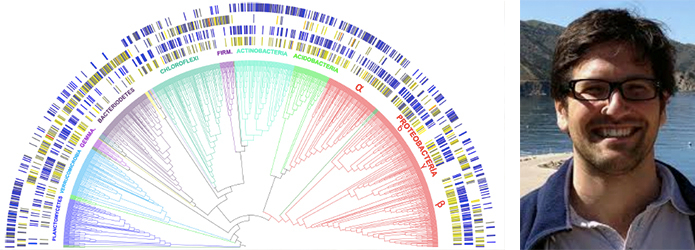!! Due to measurements to cope with the coronavirus disease (COVID-19), this colloquium is canceled.
In this talk, I will discuss new approaches that blend traditions from microbial ecology and biogeochemistry to explore how the diversity and physiology of microorganisms could shape biogeochemistry of marine ecosystems. The talk will focus on microbial ecology of benthic marine habitats. Historically, the diversity, complexity, and intractability of microbial ecosystems has relegated their study to either a reductionist descriptive tradition in microbial ecology or to a simplistically quantitative one in biogeochemistry. Yet, new ideas and tools are poised to push microbial ecology forward to a point where it can more meaningfully integrate with ecological fields at larger scales, from ecosystems to the globe.
Prof. Dr. William Orsi directs the Geomicrobiology working group at Ludwig-Maximilians Universität München, in the Geobiology and Paleontology section of the Department of Earth and Environmental Sciences. He has a bachelor’s degree in Biology from Temple University and a PhD in Biology from Northeastern University. Orsi’s research focuses on the role of microbial ecology in marine ecosystems and the carbon cycle. He has particular interests in the imprint of the diversity of microbial life on the cycling of elements and environmental change. He uses a variety of research tools, including quantitative experimental ecology, genomics, transcriptomics, and stable isotopes.
